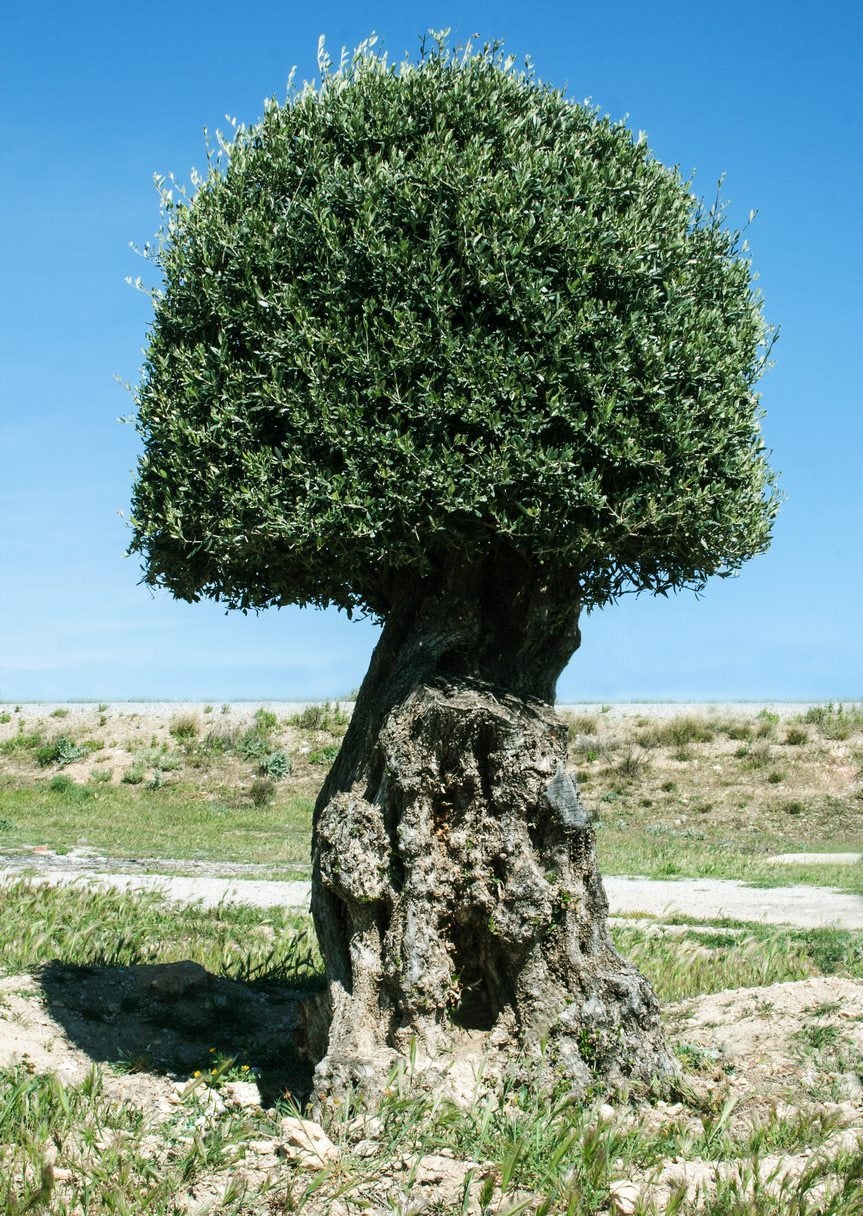Olive Tree Topiaries – Learn How To Make An Olive Topiary


Olive trees are native to the Mediterranean region of Europe. They have been grown for centuries for their olives and the oil they produce. You can also grow them in containers and olive tree topiaries are popular. If you are considering making an olive tree topiary, read on. You’ll find information about pruning an olive tree topiary, including tips on how to make an olive topiary look more natural.
About Olive Tree Topiaries
Olive tree topiaries are essentially shaped trees created by pruning. When you are making an olive tree topiary, you prune and shape the tree in a way that pleases you. How to make olive topiaries? Select one of the smaller species of olive trees. A few to consider include Picholine, Manzanillo, Frantoio and Arbequina. Be sure the cultivar you select tolerates severe pruning and doesn’t mind being kept smaller than the usual mature size. You’ll need to start making an olive tree topiary when your tree is quite young. Ideally, start shaping an olive tree when it is two years old or younger. Older trees don’t tolerate severe pruning as easily. Plant the tree in an unglazed pot or wooden barrel in well-draining soil. Don’t start pruning an olive topiary until the tree has been settled in the pot or barrel for about a year. You can also perform topiary pruning on young, outdoor trees.
Pruning an Olive Topiary
When you are shaping an olive tree, timing is important. Prune the olive tree in late winter or early spring. Although the trees are evergreen, they are growing more slowly at that time. Pruning an olive topiary starts with removing suckers that grow in at the base of the olive stem. Also, trim out those that sprout from the trunk. You’ll have to figure out the shape of your topiary’s crown before you wield the pruners. Trim the olive tree canopy into whatever shape you have selected. Olive tree topiaries can have crowns that grow naturally or else cut into balls. Shaping an olive tree crown into a ball means that you lose all flowers and fruit. This type of topiary will require regular maintenance to prevent ragged edges.
Sign up for the Gardening Know How newsletter today and receive a free copy of our e-book "How to Grow Delicious Tomatoes".

Teo Spengler is a master gardener and a docent at the San Francisco Botanical Garden, where she hosts public tours. She has studied horticulture and written about nature, trees, plants, and gardening for more than two decades, following a career as an attorney and legal writer. Her extended family includes some 30 houseplants and hundreds of outdoor plants, including 250 trees, which are her main passion. Spengler currently splits her life between San Francisco and the French Basque Country, though she was raised in Alaska, giving her experience of gardening in a range of climates.